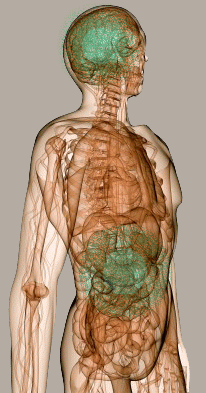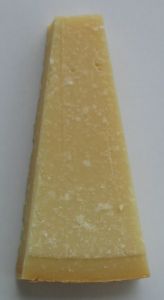
The brain-gut axis
Approximate 95% of the body’s serotonin resides between the gut nerve cells. Serotonin initiates in the gut peristaltic and secretory reflexes and transmits information to the central nervous system. The nerve cells in the gut are competitors to the nerve cells in the brain for tryptophan and other essential nutrients.
The digestion is more important then the mental processing. The second part of the anti-depression diet is to channel the essential nutrients to the brain cells. Lack of serotonin in the brain is in part a result of conditions in the gut. The gut is affected by the ailments coeliac disease, lactose intolerance, fructose malabsorption (dietary fructose intolerance) and sorbitol intolerance. The gut ailments become brain ailments thru the brain-gut axis.
This anti depression diet has a two part strategy. First: increase the intake of essential nutrients that are needed for serotonin production. Second: guide the essential nutrients to the brain cells. This diet will not help you to loose weight, nor shall it increase your weight like SSRI drugs often do. Only part of your daily food intake is exchanged by this diet. The author assumes that at work or at school one meal per day is consumed. This meal is not influenced by the diet. A mediterrane cuisine is advised.
This diet supports a SSRI drug. If your doctor believes in the brain-gut axis, then he/she will appreciate this diet. If your doctor doesn't believe in the brain-gut axis then he/she should nevertheless respect your opinions. We talk about healthy nutrition here, not about nutritional supplements.
